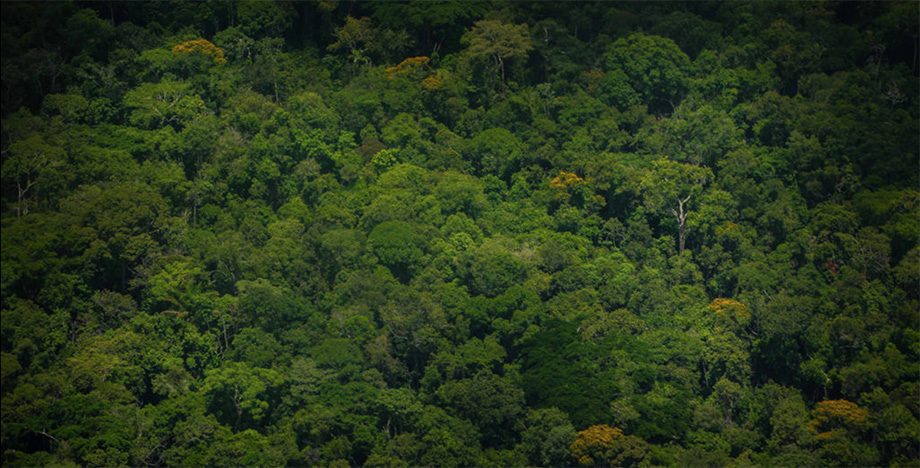BLOG | 19 .07. 2017 | LINDSAY BIGDA, RRI COMMUNICATIONS OFFICER
In Brazil, indigenous and Afro-descendant communities face unprecedented threats to their hard-won territorial and constitutional rights.
Brazil was an early leader in the recognition of indigenous and community rights to their customary lands, but a series of constitutional amendments and new laws promoted by the pro-industry administration of President Temer could roll back indigenous communities’ rights to more than 117 million hectares of ancestral land. A targeted campaign to defund and dismantle Brazil’s national indigenous agency (known as FUNAI) has left the group barely able to defend Indigenous Peoples’ culture and lands.
Quilombola Afro-descendant territories are also under threat by an effort to challenge the constitutionality of a federal decree (No 4887/03) that stipulates procedures for titling Quilombola territories. If judged unconstitutional, the decision could undermine the land titling process, and leave Quilombola lands vulnerable.
The future of the Brazilian Amazon also remains uncertain. Research demonstrates that communities are the best protectors of their lands and forests. Yet the Temer administration continues to exchange long-term sustainability for political support from a group known as the ruralistas—a powerful congressional bloc that represents Brazil’s rural elites and big-business interests. Efforts to halt the titling of indigenous lands and expedite environmental licensing for megaprojects like dams and roads threaten to open up the Brazilian Amazon to further deforestation and land grabs.
Constitutional amendments and new laws promoted by the president of Brazil could roll back indigenous communities’ rights to more than 117 million hectares of ancestral land.
In addition, last week, Brazil’s government sent Congress a bill that would reduce the size of the Jamanxim National Park and open some 860,000 acres of protected lands to logging, mining, cattle ranching, and agricultural use. The bill replaces two very similar provisional measures that were previously introduced by the government, but recently vetoed due to increasing national and international pressures.
These controversial reforms, alongside a series of political corruption scandals, have led to both increased conflict and social unrest across the country. According to a new report by Global Witness, 56 land and environmental defenders were killed in Brazil in 2016 alone—making it the deadliest of 26 analyzed countries for activists.
In response to these unprecedented threats, Brazil’s indigenous movement mobilized in record numbers for the 14th annual Acampamento Terra Livre (“Free Land Camp”) in April. With support from RRI, the Social and Environmental Institute (ISA for its Portuguese acronym), the Association of Indigenous Peoples of Brazil (APIB for its Portuguese acronym), and other allies, the convening marked the largest camp in history—with over 4,000 Indigenous Peoples from 200 communities participating in efforts to protect Indigenous Peoples’ territorial rights. Alongside national and international allies, the group filed a statement with key government ministers in defense of their rights, ancestral territories, and the environment.
“We affirm that we will not tolerate violence, loss of rights or threats perpetrated by the Brazilian State and by economic oligarchs acting against our lives and our rights,” the statement reads. “We also call upon all of the Brazilian society as well as the international community to join the fight of the original peoples in defending traditional territories and mother nature, for the good of all living beings.”
Brazil’s indigenous movement mobilized in record numbers in April—with over 4,000 Indigenous Peoples from 200 communities participating in efforts to protect Indigenous Peoples’ territorial rights.
In order to amplify efforts to defend their ancestral territories and unify strategies, the Brazilian indigenous movement developed international alliances with indigenous leaders from six countries (Panama, Costa Rica, Guatemala, Ecuador, Bolivia, and Indonesia) and with other indigenous networks. As part of the #LandRightsNow campaign, an international online petition was also sent to President Temer and Justice Minister Osmar Serraglio, calling for an end to government attacks on Indigenous Peoples’ rights and the environment.
Other international actors have also spoken out in support of Brazil’s Indigenous Peoples and in reproach of measures to roll back their rights. In June, UN experts issued a joint denouncement of increased killings of environmental and land defenders. “The rights of indigenous peoples and environmental rights are under attack in Brazil,” said Victoria Tauli-Corpuz, the UN Special Rapporteurs on the rights of Indigenous Peoples, in the statement.
In partnership with FUNAI, Google announced the integration of community territories into its maps, citing the move as an “essential step in accurately reflecting the world and showing how the indigenous communities play an important role in preserving the natural biodiversity and cultural richness of the Brazilian Amazon.” And the Government of Norway—which has provided US$1.1 billion to Brazil’s Amazon fund since 2008—issued a blunt ultimatum that it would halt contributions if rising deforestation is not reversed.
Brazil’s Indigenous Peoples and local communities are the best stewards of their lands, resources, and forests—and are renewing their struggle to protect their rights. Rolling back human rights and environmental protections will have devastating consequences, not only for these communities and their livelihoods, but also for global efforts to promote sustainable development and curb climate change.
About the author: Lindsay Bigda is a communications officer at the Rights and Resources Initiative.


